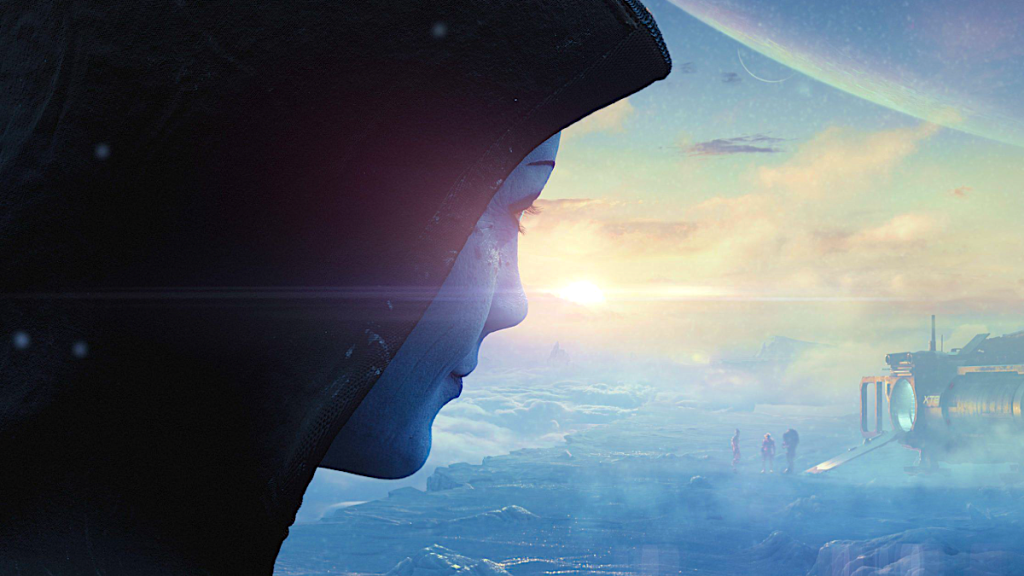At its peak, BioWare was among the most storied video game studios in the West, churning out banger after banger from the late ’90s through the 2000s. This is the studio behind all-timer series like Baldur’s Gate, Star Wars: Knights of the Old Republic, Mass Effect, and Dragon Age. However, the developer has struggled over the last decade, failing to recapture the magic that made it so successful. That includes brand-new IP like Anthem and new entries in fan-favorite series like Dragon Age: The Veilguard. And with Mass Effect 5 on the horizon, we might be looking at a make-or-break moment for BioWare, with Electronic Arts’ axe seemingly hanging very precariously over its head.
Videos by ComicBook.com
BioWare’s last commercial hit was 2014’s Dragon Age: Inquisition. Since then, Mass Effect: Andromeda, Anthem, and Dragon Age: The Veilguard have all been various levels of disappointing, which has led to several rounds of layoffs at the studio. Most recently, Electronic Arts restructured the studio by a sizable margin in January 2025 to now staff reportedly less than 100 employees. That came after a cut of around 50 employees in 2023.
With all of that turmoil, it’s fair to say that Mass Effect 5 might be the most important game the developer has ever worked on. We don’t know if EA would close the studio after another sales dud, but it certainly sounds like there would at least be some massive changes.
Remember, earlier this year, EA’s CFO, Andrew Wilson, suggested that part of The Veilguard’s problem was that it was an offline, one-and-done experience. In an investor’s call, Wilson said, “In order to break out beyond the core audience, games need to directly connect to the evolving demand of players who increasingly seek shared world features and deeper engagement alongside high-quality narrative in this beloved category.”

RELATED: I Fear Dragon Age as a Franchise May Have Just Died
BioWare tried the shared-world concept with Anthem and completely missed the mark. That led to the swing back toward a single-player, narrative-heavy game with Dragon Age: The Veilguard, which did well critically, but didn’t connect with players as well as the publisher hoped. Now, Mass Effect 5 seems like the final chance for BioWare to prove single-player games can still work for EA.
Fortunately, a few things are working in its favor, most notably, the engine change. Since 2013, the year after Mass Effect 3 released, BioWare has been stuck on EA’s Frostbite engine. And while Inquisition was a success, the developer has obviously struggled to deliver on the technology.
That’s not too surprising. Frostbite has been notoriously tough for several studios under the EA umbrella. The publisher’s sports titles are the most high-profile, but if the studio isn’t DICE, they’ve probably had a few hangups with the technology that was originally built for the Battlefield series.
Thankfully, Mass Effect 5 isn’t being made on Frostbite. Instead, BioWare is utilizing Unreal Engine 5. That’s great news for fans, as the first three Mass Effect games were all made on Unreal, and the engine is, in many ways, the industry standard. That makes it easier to find quality developers for the team who don’t have to learn an engine from scratch. There are also more people working on Unreal, making it easier to get support.

A new engine doesn’t necessarily mean much on its own. After all, there are plenty of bad games made in Unreal. Just look at Steam’s new release list every week. However, BioWare is bringing back several veteran developers who should give ME5 the best chance possible for success.
The most notable name is probably Mike Gamble, who is the executive producer and project director for ME5. He was an associate producer for ME3 and was involved in ME2. ME5’s art director is Derek Watts, who held that role during the original trilogy. Similarly, creative director Parrish Ley was the lead cinematic animator through the first three Mass Effects, and game director Preston Watamaniuk was the lead designer for the original trilogy.
Put simply, several names are involved with Mass Effect 5 who were heavily involved in the trilogy that fans loved. That doesn’t guarantee success, but it gives ME5 a better chance than it would have without them. Combine that with a return to an engine that’s much easier to develop for, and you have BioWare’s best shot in several years to bring back fans of the old games, while bringing brand-new fans into the fold.
That’s great news because BioWare needs a win. They haven’t had one in a decade, and Electronic Arts has been more than willing to close beloved studios in the past. Hopefully, BioWare doesn’t join Pandemic Studios, Visceral Games, Mythic Entertainment, and all the rest any time soon, but to do that, it almost certainly has to make a step forward with Mass Effect 5 and prove it can still make great single-player games that fans want to buy.









